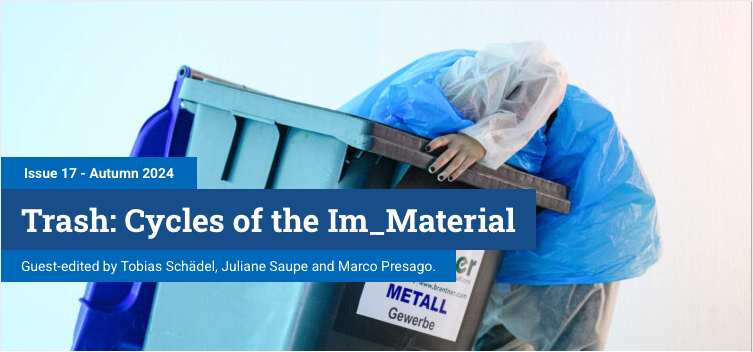Producing Trash
The Labor of Difficult Theory in the University
DOI:
https://doi.org/10.22029/oc.2024.1449Keywords:
academia, failure, trash, theory, productivity, resistanceAbstract
Scholarship often regards theory as a passive object of human agents: composed by an author with an intention, assigned to a student by a teacher for a purpose, and used by a student to understand, explain, or predict something. And yet, at some point in the academy, depending on the disciplinary context, both students and researchers will encounter ‘difficult’ theory. Such theory is difficult on two levels, in that both its content and its form of expression resist straightforward understanding. Instead, such theory excels in the production of different forms of knowledge and the exploration of new ways of producing knowledge. Encounters with difficult theory frequently produce knowledge that either doesn’t meet the university’s quality standards, or that the author simply discards. From the vantage of institutional epistemology, there’s something ‘wrong’ with such theory because it doesn’t function, yet the university continues to engage with such theory, for its difficulty provides cultural capital by means of habitual distinction. Though the university coerces difficult theory to provide understanding and methodical knowledge, such theory doesn’t do what it should do but slows down knowledge production and/or produces unintelligible gibberish: theoretical trash.
Downloads
Published
Issue
Section
License
Copyright (c) 2024 Paul Kaletsch

This work is licensed under a Creative Commons Attribution 4.0 International License.




